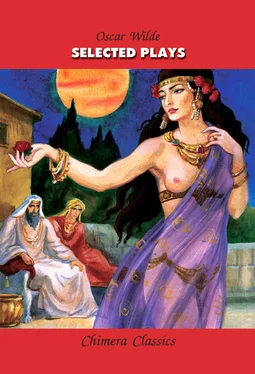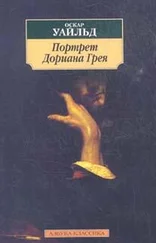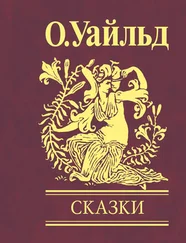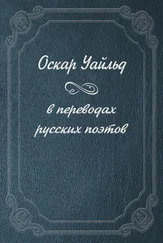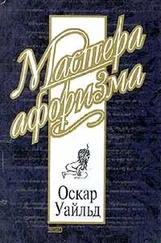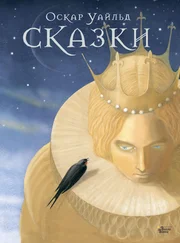HERODIAS. I will not have her dance.
SALOMÉ. I will dance for you, Tetrarch.
HEROD. You hear what your daughter says. She is going to dance for me. Thou doest well to dance for me, Salomé. And when thou hast danced for me, forget not to ask of me whatsoever thou hast a mind to ask. Whatsoever thou shalt desire I will give it thee, even to the half of my kingdom. I have sworn it, have I not?
SALOMÉ. Thou hast sworn it, Tetrarch.
HEROD. And I have never broken my word. I am not of those who break their oaths. I know not how to lie. I am the slave of my word, and my word is the word of a king. The King of Cappadocia had ever a lying tongue, but he is no true king. He is a coward. Also he owes me money that he will not repay. He has even insulted my ambassadors. He has spoken words that were wounding. But Cæsar will crucify him when he comes to Rome. I know that Cæsar will crucify him. And if he crucify him not, yet will he die, being eaten of worms. The prophet has prophesied it. Well! wherefore dost thou tarry, Salomé?
SALOMÉ. I am waiting until my slaves bring perfumes to me and the seven veils, and take from off my feet my sandals. (Slaves bring perfumes and the seven veils, and take off the sandals of SALOMÉ. )
HEROD. Ah, thou art to dance with naked feet. ’Tis well! ’Tis well. Thy little feet will be like white doves. They will be like little white flowers that dance upon the trees… No, no, she is going to dance on blood. There is blood spilt on the ground. She must not dance on blood. It were an evil omen.
HERODIAS. What is it to thee if she dance on blood? Thou hast waded deep enough in it…
HEROD. What is it to me? Ah! look at the moon! She has become red. She has become red as blood. Ah! the prophet prophesied truly. He prophesied that the moon would become as blood. Did he not prophesy it? All of ye heard him prophesying it. And now the moon has become as blood. Do ye not see it?
HERODIAS. Oh, yes, I see it well, and the stars are falling like unripe figs, are they not? and the sun is becoming black like sackcloth of hair, and the kings of the earth are afraid. That at least one can see. The prophet is justified of his words in that at least, for truly the kings of the earth are afraid… Let us go within. You are sick. They will say at Rome that you are mad. Let us go within, I tell you.
THE VOICE OF JOKANAAN. Who is this who cometh from Edom, who is this who cometh from Bozra, whose raiment is dyed with purple, who shineth in the beauty of his garments, who walketh mighty in his greatness? Wherefore is thy raiment stained with scarlet?
HERODIAS. Let us go within. The voice of that man maddens me. I will not have my daughter dance while he is continually crying out. I will not have her dance while you look at her in this fashion. In a word, I will not have her dance.
HEROD. Do not rise, my wife, my queen, it will avail thee nothing. I will not go within till she hath danced. Dance, Salomé, dance for me.
HERODIAS. Do not dance, my daughter.
SALOMÉ. I am ready, Tetrarch. (SALOMÉ dances the dance of the seven veils.)
HEROD. Ah! wonderful! wonderful! You see that she has danced for me, your daughter. Come near, Salomé, come near, that I may give thee thy fee. Ah! I pay a royal price to those who dance for my pleasure. I will pay thee royally. I will give thee whatsoever thy soul desireth. What wouldst thou have? Speak.
SALOMÉ. (Kneeling.) I would that they presently bring me in a silver charger…
HEROD. (Laughing.) In a silver charger? Surely yes, in a silver charger. She is charming, is she not? What is it thou wouldst have in a silver charger? O sweet and fair Salomé, thou art fairer than all the daughters of Judæa! What wouldst thou have them bring thee in a silver charger? Tell me. Whatsoever it may be, thou shalt receive it. My treasures belong to thee. What is it that thou wouldst have, Salomé?
SALOMÉ. (Rising.) The head of Jokanaan.
HERODIAS. Ah! that is well said, my daughter.
HEROD. No, no!
HERODIAS. That is well said, my daughter.
HEROD. No, no, Salomé. It is not that thou desirest. Do not listen to thy mother’s voice. She is ever giving thee evil counsel. Do not heed her.
SALOMÉ. It is not my mother’s voice that I heed. It is for mine own pleasure that I ask the head of Jokanaan in a silver charger. You have sworn an oath, Herod. Forget not that you have sworn an oath.
HEROD. I know it. I have sworn an oath by my gods. I know it well. But I pray thee, Salomé, ask of me something else. Ask of me the half of my kingdom, and I will give it thee. But ask not of me what thy lips have asked.
SALOMÉ. I ask of you the head of Jokanaan.
HEROD. No, no, I will not give it thee.
SALOMÉ. You have sworn an oath, Herod.
HERODIAS. Yes, you have sworn an oath. Everybody heard you. You swore it before everybody.
HEROD. Peace, woman! It is not to you I speak.
HERODIAS. My daughter has done well to ask the head of Jokanaan. He has covered me with insults. He has said unspeakable things against me. One can see that she loves her mother well. Do not yield, my daughter. He has sworn an oath, he has sworn an oath.
HEROD. Peace! Speak not to me!… Salomé, I pray thee be not stubborn. I have ever been kind toward thee. I have ever loved thee… It may be that I have loved thee too much. Therefore ask not this thing of me. This is a terrible thing, an awful thing to ask of me. Surely, I think thou art jesting. The head of a man that is cut from his body is ill to look upon, is it not? It is not meet that the eyes of a virgin should look upon such a thing. What pleasure couldst thou have in it? There is no pleasure that thou couldst have in it. No, no, it is not that thou desirest. Hearken to me. I have an emerald, a great emerald, thou canst see that which passeth afar off. Cæsar himself carries such an emerald when he goes to the circus. But my emerald is the larger. I know well that it is the larger. It is the largest emerald in the whole world. Thou wilt take that, wilt thou not? Ask it of me and I will give it thee.
SALOMÉ. I demand the head of Jokanaan.
HEROD. Thou art not listening. Thou art not listening. Suffer me to speak, Salomé.
SALOMÉ. The head of Jokanaan.
HEROD. No, no, thou wouldst not have that. Thou sayest that but to trouble me, because I have looked at thee and ceased not this night. It is true, I have looked at thee and ceased not this night. Thy beauty has troubled me. Thy beauty has grievously troubled me, and I have looked at thee over-much. Nay, but I will look at thee no more. One should not look at anything. Neither at things, nor at people should one look. Only in mirrors is it well to look, for mirrors do but show us masks. Oh! oh! bring wine! I thirst… Salomé, Salomé, let us be as friends. Bethink thee… Ah! what would I say? What was’t? Ah! I remember it!… Salomé – nay but come nearer to me; I fear thou wilt not hear my words – Salomé, thou knowest my white peacocks, my beautiful white peacocks, that walk in the garden between the myrtles and the tall cypress trees. Their beaks are gilded with gold and the grains that they eat are smeared with gold, and their feet are stained with purple. When they cry out the rain comes, and the moon shows herself in the heavens when they spread their tails. Two by two they walk between the cypress trees and the black myrtles, and each has a slave to tend it. Sometimes they fly across the trees, and anon they crouch in the grass, and round the pools of the water. There are not in all the world birds so wonderful. I know that Cæsar himself has no birds so fair as my birds. I will give thee fifty of my peacocks. They will follow thee whithersoever thou goest, and in the midst of them thou wilt be like unto the moon in the midst of a great white cloud… I will give them to thee all. I have but a hundred, and in the whole world there is no king who has peacocks like unto my peacocks. But I will give them all to thee. Only thou must loose me from my oath, and must not ask of me that which thy lips have asked of me. (He empties the cup of wine.)
Читать дальше
Конец ознакомительного отрывка
Купить книгу
